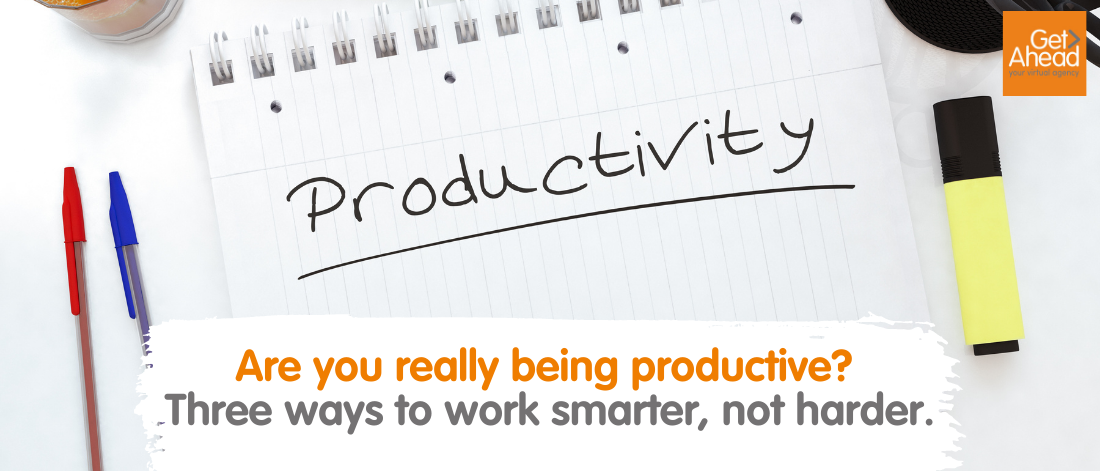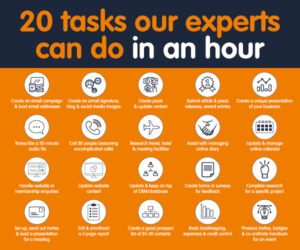Are you really being productive? Three ways to work smarter, not harder.

One of the biggest working trends during the pandemic was the 50-hour week, with homeworkers not knowing when to stop, or not feeling confident that they’d “done enough.”
But working a fifty-hour week should be a warning sign. No matter how determined you are, you cannot be productive for fifty hours of your week. It’s not good for you, and it puts pressure on your colleagues and family too.
Another lesson to come out of the pandemic is that life is precious. Flexibility is important to us at Get Ahead – most of the team have families, interests, pets and more and we don’t inefficient working to rob us of our time with them.
It’s time to work smarter, not harder.
How do I know if I’m not being productive?
Here are some of the signs that you’re not being as productive as you could be:
If you’ve been at your computer for more than an hour, you’re probably less productive now than at the start. After an hour, you’re probably working more slowly and may make mistakes.
If the end of your working day arrives and you haven’t finished anything, you may not be using your time effectively.
If you started well but now you’re getting distracted, maybe by videos, social media, games or the news, it’s a sign that your productivity has slipped.
However, if you can be honest with yourself about how productive you really are, you’re well on the way to working more efficiently.
How can I increase my productivity without increasing my hours?
It’s easier than you think!
- Take breaks
At Get Ahead, we like to work for an hour, then take a five-minute break. During your break, you can get up and stretch. Looking out of the window is a good idea too, as looking at something faraway is a good way to rest your eyes after screen time too.
If there’s a problem you can’t solve, like an Excel equation you can’t pin down or a complicated concept you can’t put into words, step away from the computer and do something else. If you’re at home, do some housework or a hobby. If you’re in an office, water the plants, and maybe offer your co-workers a cup of tea. Your break will refresh you and you should be able to unravel your problem more easily afterwards.
You should see that you get more done in two hours with a short break in the middle, than you would working two hours straight through.
- Break down your to-do list
It’s easy to feel unproductive when every task is massive. Writing “finish report” on your list means it might not get crossed off for a few months. But if you break it down into, say, “assemble February’s data,” and, “write introduction,” and any other elements that you can do within a few hours, you can triumphantly complete several steps towards getting that report done and dusted. Above all, you’ll feel motivated to tackle the rest.
- Do a time audit
For some small businesses, particularly sole traders, an underlying cause of inefficient working is taking on too much. Perhaps you don’t have time to do everything on your list; perhaps your weakest points are taking you longer than they should. If you’re overworked and firefighting, you’re unlikely to be giving your business your best work.
If you think this might be the case for you, a time audit could help. Write down everything you have to do and time how long each task takes you. The chances are that the time audit will highlight some areas of inefficiency that you could outsource to someone else.
Time audits for small businesses
If you’re not sure how to do a time audit, or what to do with your findings, we can help. Our experienced regional directors have loads of solutions to help you win back time and use it more productively. Find your local regional director here or explore our site for more ideas.








